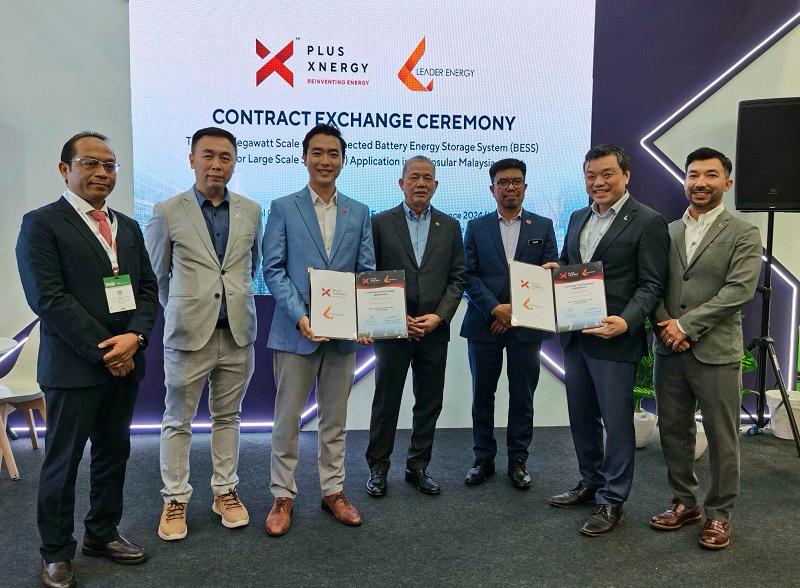KUALA LUMPUR: Leader Energy Group Bhd (LEG), via its wholly-owned subsidiary Leader Solar Energy II Sdn Bhd (LSE) and Plus Xnergy Services Sdn Bhd (PXS) will deploy the country’s first sodium-sulfur (NaS) battery energy storage system (BESS).
PXS will install and commission the 1.45MWh capacity BESS in LSE’s large-scale solar (LSS) farm located at Bukit Selambau, Kedah.
LEG executive deputy chairman and co-group CEO Datuk Sean H’ng said the company is proud to be at the forefront of Malaysia’s renewable energy landscape with the deployment of the country’s first-of-its-kind NaS BESS.
“This innovative project will improve the efficiency and reliability of our solar energy operations at LSE while also demonstrating the broader potential of NaS BESS for grid firming and energy stability.
Together with PXS, we are setting a new benchmark for sustainable and advanced energy solutions in Malaysia’s energy sector,“ he said.
Deputy prime minister, Datuk Sri Fadillah Yusof, who is also the Energy Transition and Water Transformation minister, witnessed the contract exchange ceremony between LEG and PXS at the International Greentech & Eco Products Exhibition & Conference Malaysia (iGEM) 2024 at the Kuala Lumpur Convention Centre.
The groundbreaking system utilises NaS battery technology has greater energy density and can be fully discharged without cell degradation.
Its discharge duration of 6-18 hours is significantly higher than Lithium-based systems.
As a result, it can store more energy in a smaller footprint while having a longer life span and low maintenance.
This project marks Malaysia’s first utility-scale BESS connected to an operational LSS farm.
It is noteworthy as it will also be the first megawatt-scale grid-connected battery used for LSS applications in peninsular Malaysia.
This system’s scalable design allows for future expansion through a two-layer stacked container configuration, further enhancing energy security in a highly efficient manner.
The NaS BESS alleviates intermittency challenges by enabling excess energy from the LSS farm to be stored safely and reliably and discharged quickly in response to fluctuations for stable and uninterrupted energy output.
PXS group CEO Ko Chuan Zhen said pioneering this NaS BESS system represents another milestone for the company in supporting Malaysia’s net zero ambitions.
“We are pleased with the foresight of LEG in piloting this technology, which has tremendous benefits for our renewable energy industry.
“The estimated annual avoidance of 126.5 tCO2e enabled by this energy storage and discharge system will substantially contribute to national sustainability targets.
“The project will contribute to meeting the rising demand for stable renewable energy, particularly with Malaysia emerging as a regional data and cloud centre hub,“ he said.
The NaS BESS improves the tCO2e avoidance of LEG’s LSE, which occupies a 72-acre site with a capacity of 20 MWac (megawatt alternating current) under the National LSS2 programme.
It also has another 29 MWac LSE project at Kuala Muda, Kedah.
Both projects currently have an estimated 72,148 tCO2e avoidance annually.
Installation of the environmentally benign NaS BESS system is expected to commence in mid-October 2024 and be completed by the end of the year.
The deployment of BESS encourages the integration of renewable energy into the grid, and the enhanced energy stability is expected to have a significant upside for the economy.
BESS ensures a steady power supply, even during peak demand or low generation.
This stabilises the grid and lowers energy costs in the long run, supporting economic growth.
BESS also helps reduce carbon emissions, improve air quality, and create new job opportunities for the community in the renewable energy and technology sectors.









